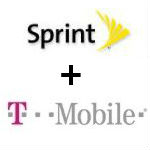 The FCC has formally approved the T-Mobile Sprint merger, with conditions. With the Department of Justice having previously approved the merger, the only remaining hurdle is the lawsuit brought by several states attorneys general that aims to block the merger.
The FCC has formally approved the T-Mobile Sprint merger, with conditions. With the Department of Justice having previously approved the merger, the only remaining hurdle is the lawsuit brought by several states attorneys general that aims to block the merger.
According to a press release, the FCC determined that the merger “will help close the digital divide and advance United States leadership in 5G.”
T-Mobile Sprint Merger Conditions
The conditions imposed by the FCC relate to wireless network deployment commitments. The merger partners have committed to deploying 5G service to cover 97% of the U.S. population within three years and 99% within six years.
The partners also said that within six years, 90% of the overall population and two thirds of the rural population would have access to mobile service supporting speeds of at least 100 Mbps. Within the same time frame, 99% of the overall population and 90% of the rural population would have access to speeds of at least 50 Mbps.
Those conditions match those that FCC Chairman Ajit Pai referenced back in May, when he said that based on those conditions, the merger had his approval. The formal approval received this week came through a
According to the FCC press release, the commission plans to verify that the merger partners meet merger conditions by using “rigorous drive-testing, overseen by an independent third party and subject to commission oversight.” The merged company could face payments as high as two billion dollars if it doesn’t meet its six-year commitments, and the amount owed would grow until commitments are met.
The DOJ also imposed conditions on the merger when it gave its approval back in July. A key condition was an agreement to sell Sprint’s prepaid business and some of its spectrum to Dish Network, easing DOJ concerns about the impact on competition in the wireless business.
The Dissenters
Dissenting FCC commissioners Jessica Rosenworcel and Geoffrey Starks each filed lengthy comments explaining their reasons for not agreeing with the merger approval.
Both Rosenworcel and Starks argued that the merger would reduce wireless competition, which would lead to higher prices for consumers. Both commissioners also referenced procedural irregularities in the review process. They argued, for example, that the commission should have sought comment after several key developments but did not.
Starks also argued that the merger would make it more difficult for rural wireless carriers to obtain favorable terms on roaming agreements, that it would harm resellers and their customers and would result in fewer overall jobs.
Rosenworcel questioned whether Dish had correctly estimated the cost to build the competitive wireless network it said it would build as a condition of the acquisition of the Sprint assets. She expressed concern that Dish might never actually build the network but instead might sell the spectrum and operate as a reseller. Although Dish faces a $2.2 billion penalty if it does that, the penalty could be viewed as “the cost of doing business,” Rosenworcel said.


